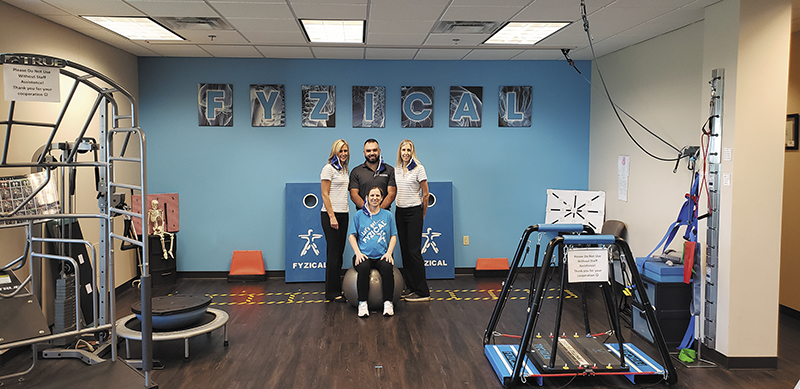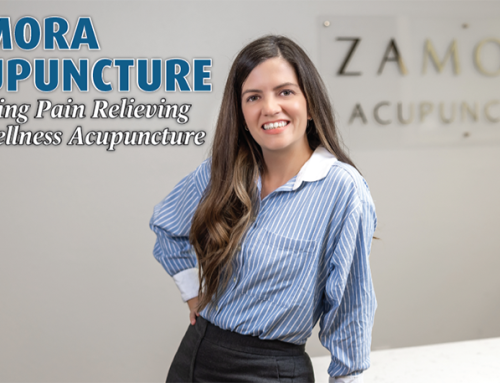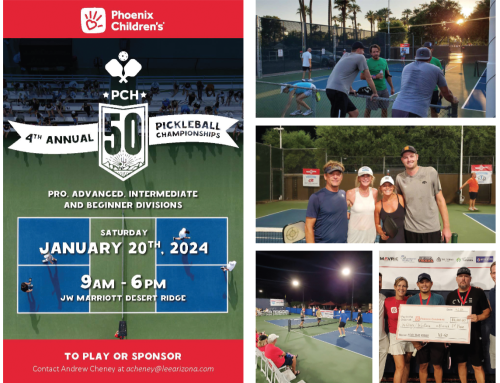By Michelle Talsma Everson
This month ushers in the fall season—and it also happens to be that September 21 to 25 is National Fall Prevention Awareness Week. Luckily, the local FYZICAL Therapy & Balance Center is here to help raise awareness of fall prevention and offer tools and resources to keep you on your feet.
“The coronavirus pandemic has changed a lot of things. One thing that’s still the same? Falling is not a normal part of aging,” according to the National Council on Aging.
“At FYZICAL, we want to make the public aware of what a problem falls are and that they can do something about it,” says Sandi Salazar, physical therapist, and the owner of Phoenix’s FYZICAL Therapy & Balance Center.
To do so, FYZICAL is embarking on a campaign to help us #fightthefall.
So, how big of a problem is falling? According to the Centers for Disease Control (CDC), each year, more than one in four older adults aged 65 and older will fall. Among older adults, falls are the number one cause of injuries and death from injury. This represents 29 million falls, 3 million emergency department visits, 800,000 hospitalizations, and 28,000 deaths, cites the CDC.
Salazar shares that international research shows that falls have gotten worse since the COVID-19 pandemic due to a decline in physical activity and increase in isolation.
“As the world contends with the long-term effects of COVID-19 on physical and emotional health, what can we learn from other countries whose first cases occurred months before the U.S.? For instance, in Australia in June, approximately two months after their ‘first wave’ had passed, the Australian Physiotherapy Association (APA), reported that falls due to COVID-19 physical inactivity and isolation were up 30 percent,” she says.
“…While well meaning, infection control measures taken by aged care providers have had the perverse effect of accelerating physical, mental and emotional decline in many cases….. The lack of activity and exercise will have significantly impacted …. their mobility, strength and balance and their cognitive and mental health,” the APA found.
In addition to being dangerous, falls are also costly. “Older adult falls result in more than $31 billion in annual Medicare costs, according to the CDC. “These costs will surge unless we recognize the problem and focus on prevention.”
And, while much of fall research focuses on older adults, Salazar says that falls impact people of all ages. For example, according to the CDC, falls are the leading cause of non-fatal injuries for all children ages 0 to 19. “Every day, approximately 8,000 children are treated in U.S. emergency rooms for fall-related injuries. This adds up to almost 2.8 million children each year,” cites the CDC.
“We see clients across the age spectrum,” Salazar says. “For example, there are often a lot of balance issues in youth sports due to concussions and muscle imbalances resulting from repetitive motions related to their sport. This isn’t just an older adult issue.”
So what are some of the keys to fall prevention in the first place? Salazar notes that, like with many health and safety issues, the answer often lies in prevention. One tool is having your balance checked.
“No matter what age you are, your balance can always be improved – in fact, even those who do not live with a balance or gait disorder can still suffer from balance-related injuries that occur from poor posture or impaired reflexes,” according to FYZICAL. “However, if you frequently notice an imbalance, dizziness, or unsteadiness that makes you feel as if you may fall over at any given time, it is a sign that you may be living with a balance or gait disorder.”
Balance disorders, and balance issues in general, typically stem from the vestibular system, according to Salazar. “The vestibular system is a delicate collection of fluid-filled chambers and sensory nerves located in the inner ear. Your vestibular system helps manage your ‘proprioception,’ or sense of position, and when this is altered, it can be difficult to keep yourself steady.”
So how can someone tell that they need to improve their balance? According to FYZICAL, this simple test may be an indicator that you should seek physical therapy intervention:
• Stand barefoot next to a counter, sink, or chair with your hand gently grasping the counter surface.
• Put one foot directly in front of the other, so that one heel is touching the opposite toes.
• Gently lift your hand up, but keep it close to the counter in case you need to grab it quickly. Try to hold this for 10 seconds (only do this if you feel safe or have someone nearby to help you).
• Now try it with your eyes closed.
• Do you wobble or lose your balance? This means your balance needs work.
Some reasons for balance issues could be:
• Benign paroxysmal positional vertigo (BPPV)
• Concussions
• Deconditioning: if you don’t use it, you lose it
• Poor posture
• Migraines
• Injury or ailment
• Neurological issues, such as brain injuries, stroke, or Parkinson’s disease
• Meniere’s disease
• Vestibular neuritis
To help locals with balance issues and fall prevention, Salazar and her team at FYZICAL Therapy & Balance Center offer a free fall risk assessment.
“The make-up of your treatment plan will be dependent upon the origin of your balance issue,” Salazar explains about the process. “When you arrive at FYZICAL, your physical therapist will walk you through a comprehensive exam in order to gauge the nature of your condition and figure out the best course of treatment for your needs. Whatever the case may be, all treatment plans will contain targeted balance exercises and stretches to help improve your core, vestibular system, and overall balance / proprioception. Depending on your condition, vestibular rehabilitation and videonystagmography may also be included in your treatment plan.”
Salazar says that, originally, she was an independent private physical therapy practice since 2006, but joined the FYZICAL franchise family in 2015. Since then, the practice has only continued to grow by word of mouth and community support.
“We are really grateful for our patient population and the word of mouth marketing and positive online reviews,” Salazar says. “We’ve grown because of the quality of care we provide and our reputation.”
“FYZICAL is a completely new take on patient care and physical therapy,” she says. “We have highly skilled, quality providers that work with our proprietary equipment—some of which is NASA engineer-designed—to allow for a high quality of care and results. We are the number one physical therapy franchise and number 33 on ‘Entrepreneur’s Franchise 500.’”
Whether it’s balance issues or another issue that a new client comes into FYZICAL for, Salazar wants locals to know that physical therapy doesn’t have to hurt—especially because of her practice’s unique approach to structural body work. The local FYZICAL location also takes most insurances and private pay, and is adhering to the highest of COVID-19 safety standards.
“All of our staff are required to wear masks, temperatures are checked, and everything is sanitized in between each use,” she affirms.
For all of her new and current clients—and the community at large—Salazar and her team want everyone to be aware of their own balance issues and needs to help prevent falls this season and all year-round.
FYZICAL not only treats balance issues, but several other issues as well, including: cervicogenic dizziness, neurological rehabilitation, myofascial release manual treatment, concussion management, sciatica, neck/back pain and disorders, orthopedic and sports related injuries, post surgical rehabilitation, frozen shoulder, and plantar fasciitis to name a few.
FYZICAL Therapy & Balance Center is located at 20950 N. Tatum Boulevard, Suite 390, in Phoenix. Visit fyzical.com/phoenix or call 602-404-8012 for more information and to schedule your free fall risk assessment to help “Fight the Fall.”






